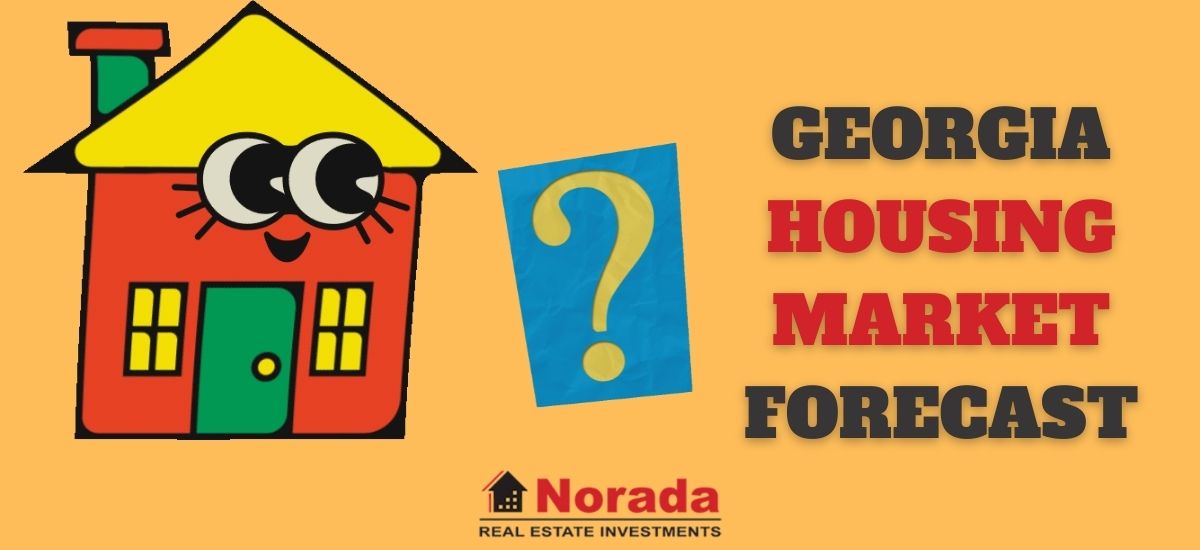A Deep Dive Into Georgia’s Housing Market: Understanding Foreclosures And Their Impact
A Deep Dive into Georgia’s Housing Market: Understanding Foreclosures and Their Impact
Related Articles: A Deep Dive into Georgia’s Housing Market: Understanding Foreclosures and Their Impact
Introduction
With enthusiasm, let’s navigate through the intriguing topic related to A Deep Dive into Georgia’s Housing Market: Understanding Foreclosures and Their Impact. Let’s weave interesting information and offer fresh perspectives to the readers.
Table of Content
A Deep Dive into Georgia’s Housing Market: Understanding Foreclosures and Their Impact

The state of Georgia, like many other regions across the United States, has experienced its share of housing market fluctuations, including periods marked by significant foreclosure activity. Understanding the nuances of foreclosures in Georgia provides valuable insights into the broader economic landscape and the challenges faced by homeowners and communities alike. This comprehensive analysis explores the intricacies of Georgia’s foreclosure landscape, examining its historical trends, contributing factors, and the impact on both individual homeowners and the state’s overall economic health.
Historical Context: Navigating the Tides of the Housing Market
Georgia’s foreclosure rate, like the national average, surged during the Great Recession of 2008-2009, reflecting the broader economic downturn and its impact on the housing market. This period saw a significant rise in foreclosures across the state, with specific regions experiencing higher rates than others. The foreclosure crisis was primarily driven by factors such as:
- Subprime Lending: The widespread practice of issuing mortgages to borrowers with poor credit history and limited financial resources contributed to the housing bubble, as these borrowers were more susceptible to defaulting on their loans when market conditions deteriorated.
- Adjustable-Rate Mortgages (ARMs): The use of ARMs, which feature interest rates that fluctuate over time, played a role in the crisis. As interest rates rose, many homeowners found themselves unable to afford their mortgage payments, leading to foreclosure.
- Overvaluation of Housing: The rapid rise in housing prices during the early 2000s created an unsustainable market, leading to overvaluation and inflated property values. When the bubble burst, prices plummeted, leaving many homeowners underwater, meaning they owed more on their mortgage than their homes were worth.
The Impact of Foreclosures on Georgia’s Economy and Communities
Foreclosures have far-reaching consequences, impacting not only individual homeowners but also the broader economic landscape of Georgia. The ramifications include:
- Economic Decline: Foreclosures contribute to a decline in property values, reducing the overall wealth of homeowners and impacting local tax revenues. This can lead to a decrease in economic activity, job losses, and a strain on local services.
- Neighborhood Decline: Foreclosed properties often become vacant and neglected, contributing to neighborhood blight and a decline in property values. This can create a cycle of disinvestment, making it difficult for communities to attract new residents and businesses.
- Social Disruptions: Foreclosure can have devastating consequences for families, leading to displacement, homelessness, and financial hardship. The emotional and psychological toll on individuals and families facing foreclosure can be significant.
Understanding the Foreclosure Process in Georgia
Navigating the foreclosure process in Georgia can be complex and daunting for homeowners facing financial difficulties. It is crucial to understand the legal framework and the various stages involved:
- Default: When a homeowner fails to make mortgage payments as agreed upon in the loan agreement, they are considered to be in default. This triggers a series of steps that can ultimately lead to foreclosure.
- Notice of Default: Lenders are required to provide homeowners with a notice of default, outlining the amount owed and the steps that need to be taken to rectify the situation.
- Acceleration Clause: The acceleration clause in a mortgage agreement allows the lender to demand the entire remaining balance of the loan immediately upon default. This can significantly increase the amount owed and make it more challenging for homeowners to catch up on payments.
- Foreclosure Lawsuit: If the homeowner fails to cure the default, the lender can file a foreclosure lawsuit in court. This process involves legal proceedings and a court hearing to determine the validity of the foreclosure.
- Foreclosure Sale: If the court rules in favor of the lender, a foreclosure sale is scheduled. The property is sold at auction to the highest bidder, and the proceeds are used to pay off the mortgage debt.
- Redemption Period: In some cases, Georgia law allows homeowners a redemption period to reclaim their property after a foreclosure sale. This involves paying the full amount of the debt, plus any legal fees and expenses.
Navigating Foreclosure: Options for Homeowners
While foreclosure can be a daunting prospect, there are options available to homeowners facing financial difficulties. It is crucial to seek professional advice and explore all possible avenues:
- Loan Modification: Homeowners can contact their lender and request a loan modification, which may involve adjusting the interest rate, extending the loan term, or reducing the monthly payment amount.
- Short Sale: A short sale involves selling the property for less than the amount owed on the mortgage. This option can help homeowners avoid foreclosure and minimize the negative impact on their credit score.
- Foreclosure Prevention Counseling: Non-profit organizations and government agencies offer foreclosure prevention counseling services. These services provide guidance and support to homeowners facing foreclosure, helping them understand their options and navigate the legal process.
The Role of Government and Non-Profit Organizations in Foreclosure Prevention
Recognizing the far-reaching consequences of foreclosures, both government agencies and non-profit organizations play a crucial role in providing support and resources to homeowners facing financial difficulties.
- State and Federal Programs: Georgia offers various state and federal programs designed to assist homeowners at risk of foreclosure. These programs may provide financial assistance, counseling services, or loan modifications.
- Non-Profit Organizations: Numerous non-profit organizations across Georgia specialize in foreclosure prevention and housing counseling. They offer a range of services, including education, legal assistance, and financial support.
FAQs Regarding Foreclosures in Georgia
Q: What are the most common reasons for foreclosure in Georgia?
A: The most common reasons for foreclosure in Georgia are:
- Job Loss: Unemployment or a significant reduction in income can make it difficult for homeowners to keep up with mortgage payments.
- Medical Expenses: Unforeseen medical bills can strain household finances and lead to mortgage delinquency.
- Divorce or Separation: Divorces or separations can create financial instability and make it challenging to manage mortgage payments.
- Overextension: Taking on too much debt or overspending can lead to financial difficulties and ultimately foreclosure.
Q: How can I avoid foreclosure in Georgia?
A: To avoid foreclosure, homeowners should take the following steps:
- Contact Your Lender: If you are facing financial difficulties, contact your lender as soon as possible to discuss your options.
- Explore Loan Modification Options: Inquire about loan modification programs that may help reduce your monthly payments or extend the loan term.
- Seek Professional Counseling: Consult with a foreclosure prevention counselor to understand your legal rights and explore all available options.
- Manage Your Finances: Create a budget, prioritize your expenses, and explore ways to reduce your debt.
Q: What happens if I lose my home to foreclosure in Georgia?
A: If you lose your home to foreclosure, you will be evicted from the property, and the lender will have ownership of the home. The foreclosure will also have a negative impact on your credit score, making it difficult to obtain loans or credit in the future.
Q: What are the legal rights of homeowners facing foreclosure in Georgia?
A: Georgia law provides certain protections for homeowners facing foreclosure. These rights include:
- Notice of Default: Lenders are required to provide homeowners with a notice of default before initiating foreclosure proceedings.
- Right to Cure Default: Homeowners have a right to cure the default by paying the delinquent amount owed.
- Right to Counsel: Homeowners have the right to legal representation during the foreclosure process.
- Redemption Period: In some cases, homeowners may have a redemption period to reclaim their property after a foreclosure sale.
Tips for Homeowners in Georgia
- Monitor Your Finances: Keep track of your income and expenses to ensure you can afford your mortgage payments.
- Build an Emergency Fund: Save money to cover unexpected expenses that could strain your finances.
- Review Your Mortgage: Understand the terms of your mortgage agreement, including the interest rate, loan term, and any potential penalties for late payments.
- Seek Professional Advice: Consult with a financial advisor or foreclosure prevention counselor for guidance and support.
- Explore Government and Non-Profit Resources: Inquire about available government programs and non-profit organizations that offer assistance to homeowners facing financial difficulties.
Conclusion
Foreclosures in Georgia, while a complex and multifaceted issue, are a crucial indicator of the state’s economic health and the well-being of its residents. Understanding the historical context, contributing factors, and impact of foreclosures allows for a more informed approach to addressing this challenge. By promoting financial literacy, providing access to resources, and strengthening foreclosure prevention programs, Georgia can work towards mitigating the negative consequences of foreclosures and fostering a more stable and equitable housing market for all its residents.








Closure
Thus, we hope this article has provided valuable insights into A Deep Dive into Georgia’s Housing Market: Understanding Foreclosures and Their Impact. We thank you for taking the time to read this article. See you in our next article!